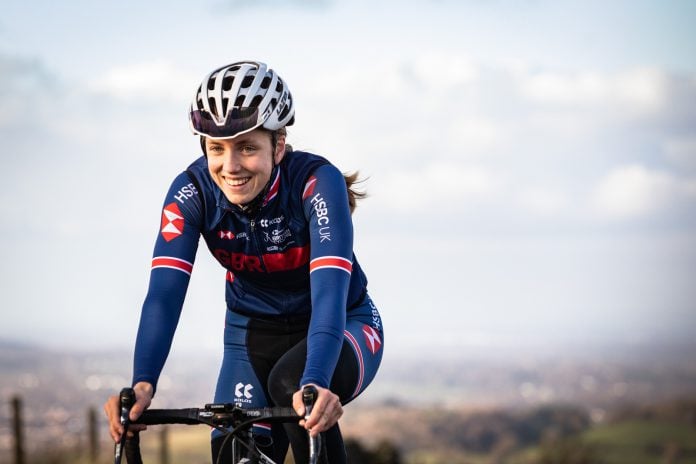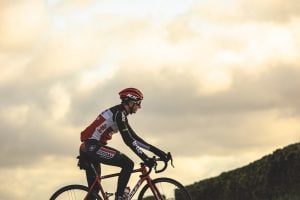You can hear a myriad of answers around the topic of nutrition and protein intake for cyclists. If you’re still confused about how much you need, when to take it and where you can get it from, we’ll help you out!
Protein has been through the mill a bit over the last 10 years. It was originally regarded as an energy source that leads to weight gain. Though as we understand it more & more, it’s becoming clear that isn’t necessarily the case. Recently the opposite of this has become more popular, and decrease in carbs and an increase in protein to promote weight loss.
— CALORIES BURNED CYCLING: THE NEED TO KNOW —
Though what if protein shouldn’t actually be referred to at all in terms of weight loss? It’s clear we’re missing the bigger picture. Protein is essential for recovery, adaptation to exercise and protein synthesis in the muscles. Without it, you won’t recover from the hard work properly, so you won’t get any fitter! Lose lose, so how much protein do cyclists really need?
How Much Protein Do You Need In Your Diet
In the UK, 0.75g of protein per kilogram of body weight, per day is the recommended amount. Although in athletes this number is higher. It can range anywhere from 1.2g to 2.2g per kg of body weight daily. This is because they break down a lot more muscle. The intensity and volume of your training will dictate just how much you need. More stress on the body will need more protein to help recover.
— HOW TO GET A GOOD NIGHTS SLEEP FOR A GREAT RIDE —
Protein should be spread throughout the day. It can’t process it all at once, so best to eat smaller, more regular portions if you’re trying to up your intake. 20g is the limit hourly, and it’s best to get some of this protein within 20 minutes of finishing training, often known as the metabolic window. The rest can be spaced throughout the day in meals & snacks.
Where Does Protein Come From?
There’s a whole hose of different protein sources. Though meat was originally the most common, people are turning more & more to vegetarian and vegan options for sustainability. 100g of chicken contains around 30g of protein, whereas 100g of almonds have 19g and the equivalent of lentils around 8g.
Though the quality and accessibility of the proteins can vary. Protein is made up of 22 amino acids, 9 of which are essential. The proteins found in eggs, dairy and meat contain all of the essential amino acids your body needs to process them. This is a bit more difficult in plant based proteins, though that doesn’t mean they’re to be overlooked, or any less useful. Some plant based proteins such as quinoa & soy beans are both complete.
Protein can also be supplemented from a variety of different sources like whey. These are designed for a quick and efficient delivery. But it’s important to make sure they supplement a balanced diet and not replace the foods!
Other benefits of protein:
Recovery, Recovery, Recovery.
Protein is best used to keep you in one piece and injury free. Recover through the difficult training days, and adapt to the work load. This will leave you ready to go day after day. Recovery is key to stringing together a high quality training programme and keeping the consistency that leads to results.
Protein Increases Energy Expenditure
It takes the body slightly more calories to burn protein than carbohydrate. This can help to increase energy expenditure if you eat the same volume of food but increase the amount of protein slightly. Protein also preserves the lean muscle tissue. Which in turn takes more energy to retain. So a slightly higher protein diet can promote calorie burn by helping this.
— BEST WAYS FOR CYCLISTS TO BURN FAT —
Though we’re not throwing around huge numbers of calories, it’ll all add up over the long run. Changing small things at a time can make a difference long term, any big changes are hard to sustain.
Burning calories while you’re asleep sounds like a win win, and it’s not a myth. An increase in protein has been shown to increase your metabolic rate meaning you can burn extra calories through the night.
Protein Reduces Calorie Intake
Protein helps us to feel more full through the day and suppresses our appetite. A small amount of protein with a snack or meal can stop you craving more soon after. This can stop a quick snack like a piece of fruit becoming a piece of fruit plus half the kitchen cupboard, especially after the resulting insulin spike.
This impact on blood sugar will help to reduce those cravings. The blood sugar spike is a lot lower and therefore the dip afterwards will also be lower. This will stop you having the following lethargic lull and the sugary cravings. Keeping carbohydrate portion sizes smaller and complimenting with extra protein will help all round.
Protein Improves Body Composition
If you’re in the market for a better power to weight ratio, often the easiest way to achieve this is just lose a bit more weight. It’s cheaper than expensive bike parts or a whole new bike. Though you can’t beat a new bike. Protein can help with this. Increasing your protein intake slightly can promote fat loss rather than just cutting calories from an otherwise carbohydrate loaded diet.
Protein won’t make you put on excess weight unless it’s accompanied by limited cardiovascular exercise and a huge amount of excess calories. Cyclists have a fear of anything that will make them grow or get significantly heavier, but protein won’t be what causes that.
In fact, if you’re cutting out protein it’s likely you’ll get injured and have to take a break from the bike. This is will add on the pounds much faster! As long as your overall calorie intake isn’t higher than calorie expenditure, you won’t gain excess pounds, even if the majority was protein.
— HOW TO TALK CYCLIST – ROAD CYCLING —
Protein Isn’t The Magic Formula
Of course a lot of protein in an athletic diet is important, but using it to create a well rounded balanced diet is important. It can be used to promote recovery, control cravings and shift to a better body composition, but it isn’t the magic pill. You’ll need plenty of carbs, fats and nutrients to complete the diet and give you the optimum recipe for performance.












